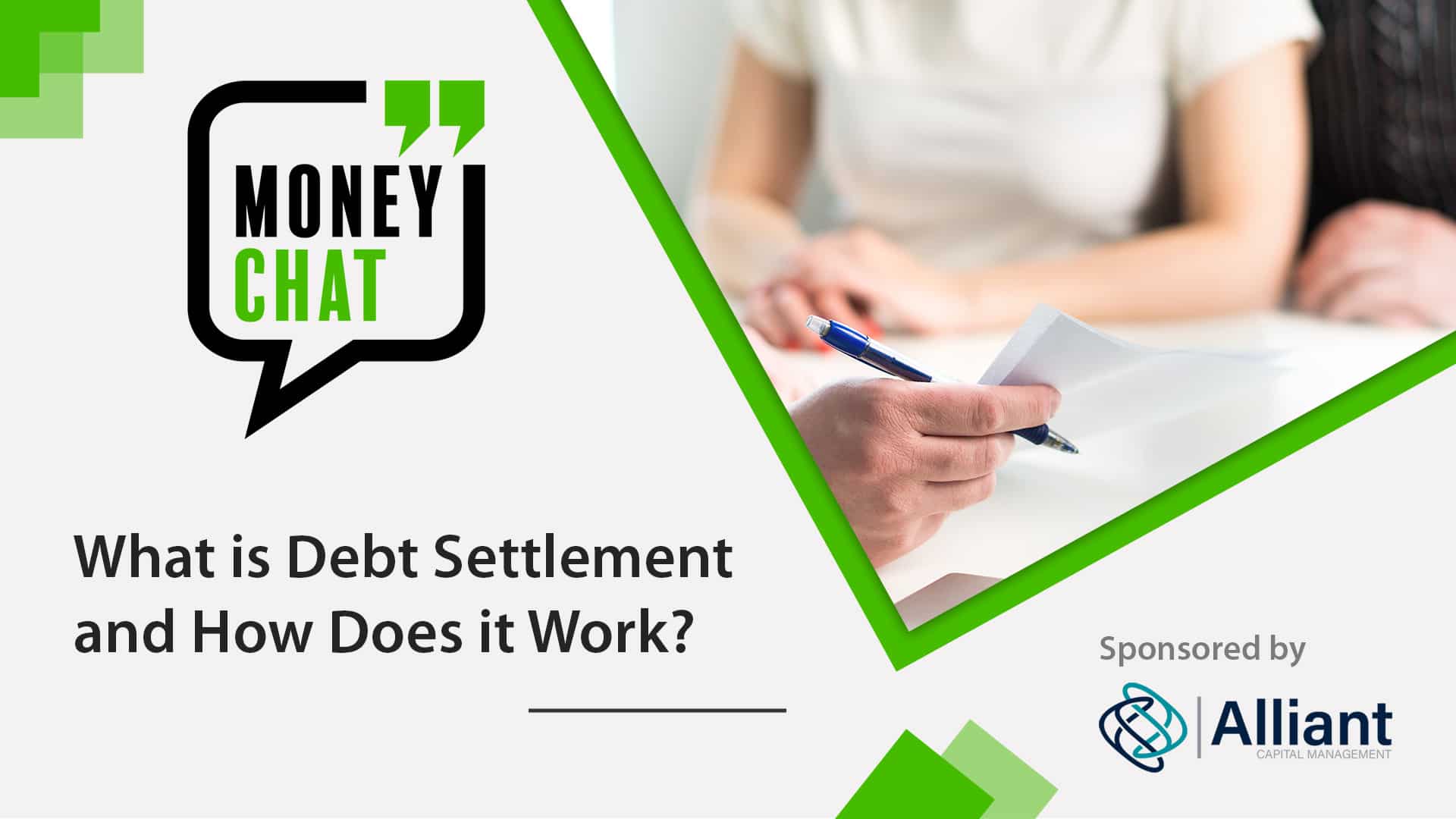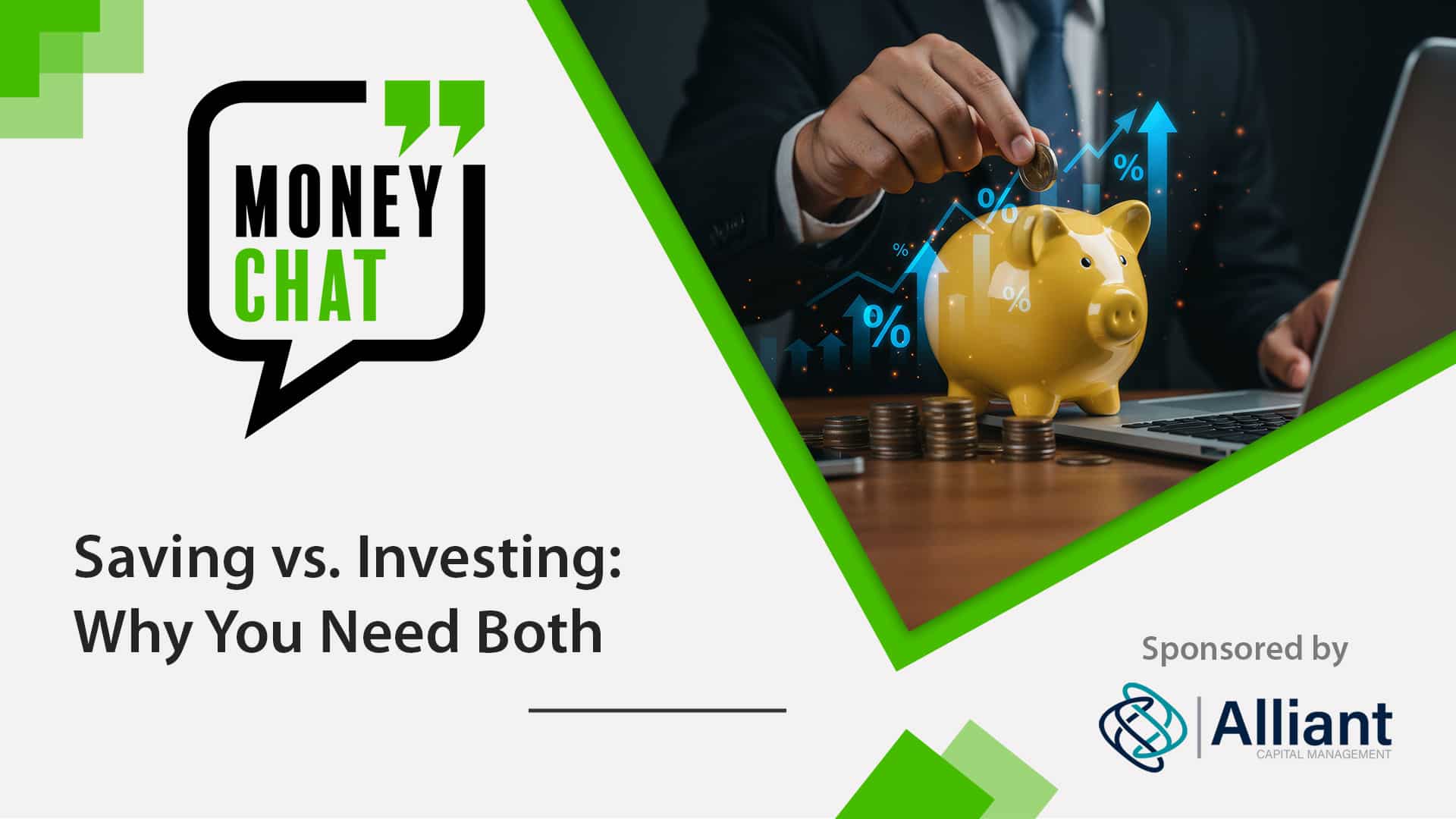
What is Debt Settlement and How Does it Work?
Do you feel overwhelmed by mounting debts that seem impossible to manage? You’re not alone. Millions of people struggle with financial obligations that can lead to stress, anxiety, and decreased quality of life. One possible solution to explore is debt settlement.
In this Money Chat, we’ll look at what debt settlement is and how it potentially reduces your debt. Whether you have credit card bills, medical expenses, or other unsecured debt, understanding your options is the first step toward financial relief. We’ll explore the debt settlement process, discuss who might be a good fit to pursue this option, and weigh the pros and cons to help you make an informed decision. Read on to discover if this could be the right path for you.
What is Debt Settlement?
Debt settlement is negotiating with creditors to pay a lump sum that’s less than what you owe, settling your debts for a reduced amount. This strategy is often a lifeline for those on the edge of more severe financial consequences, such as bankruptcy, and provides hope for those weighed down by debt.
Here’s how it compares with other methods:
- Debt Consolidation: This approach uses a new loan to pay off multiple debts, merging them into a monthly payment. The goal is not to reduce the total amount owed but to secure a lower interest rate or more favorable payment terms.
- Debt Management: You can work out a payment plan through a credit counseling agency that negotiates on your behalf to lower your interest rates or monthly payments with creditors. Unlike debt settlement, you aim to pay off the entire debt over time, which can better preserve your credit score.
- Bankruptcy: This is the most drastic form of debt relief. While bankruptcy can wipe out many types of debt, it dramatically affects your credit for years. Debt settlement, by contrast, also impacts your credit but typically not as severely or permanently.
Each option has merits and drawbacks; the right choice depends on your financial situation and objectives. Making a pro/con list is a good way to determine the best solution.
How Does Debt Settlement Work?
Debt settlement is a step-by-step process designed to help reduce the burden of your debts. Here’s a closer look at how each stage typically works:
- Assessing your financial situation:
First things first: take a good look at your finances. Calculate your debt-to-income ratio by comparing your monthly debt payments to your monthly gross income. This figure is crucial because it shows how much debt you can realistically manage.
- Choosing a debt settlement company:
Next, you must pick the right company to help you negotiate your debts. It’s important to choose wisely. Look for a company with a strong reputation and a history of helping people in situations similar to yours. Be cautious of companies that ask for money upfront or promise to wipe out your debts overnight—these are major red flags.
- The role of the debt negotiator:
Once you’ve chosen a company, they’ll assign a debt negotiator to your case. This person acts as your representative, dealing directly with your creditors. They’ll try to convince your creditors to accept less than what you owe by explaining your financial hardships.
- The settlement process:
The time it takes to settle your debts can vary—it might be a few months or a couple of years. During this period, your negotiator will be in regular contact with your creditors, trying to work out a deal that both sides can agree on.
- Agreement and payment:
If the negotiations go well, you’ll agree to pay off your debts with a lump-sum payment that’s less than the total debt you owe. Once you make this payment, your creditor will mark your debt as “settled” on your credit report. This does affect your credit score, but it is better for your credit than ignoring a debt and it also means you’re paying off your debt for less than you originally owed.
Navigating through these steps can significantly lighten your financial load, making debt settlement a valuable option for those struggling with significant debt.
Pros and Cons of Debt Settlement
Understanding the full scope of debt settlement can help you decide if this approach fits your situation. Let’s take a look at the opportunities and challenges.
Advantages
- Debt Reduction: Negotiating a settlement means you could pay significantly less than the full balance of your debts.
- Avoid Bankruptcy: For many, debt settlement provides an alternative to the severe repercussions of bankruptcy, such as a dramatic drop in your credit score and a long-lasting stain on your credit report.
Disadvantages
- Credit Score Impact: Settling your debt for less than you owe can negatively affect your credit score. It indicates to future lenders that you didn’t fully meet your previous credit obligations. (However, ignoring delinquent credit-reported debt will also harm your credit score.)
- Fees and Legal Risks: Opting for debt settlement can incur additional costs. Many debt settlement companies charge fees for their services, and if the process is not managed correctly, there might be legal risks from unsettled debts continuing to accrue interest or creditors seeking the remaining balance.
- Limited Applicability: Debt settlement isn’t a universal solution; it typically applies only to unsecured debts, such as credit cards and medical bills. Secured debts like auto loans or mortgages aren’t usually eligible because creditors have collateral they can claim.
By weighing these pros and cons, you can better assess whether debt settlement is a viable strategy for your financial recovery. Next, we’ll delve into practical considerations to help you navigate this process more effectively.
Who Should Consider Debt Settlement?
Debt settlement isn’t a one-size-fits-all solution; it’s best suited for specific financial situations. Understanding whether this strategy aligns with your circumstances is crucial in making an informed decision.
Criteria for considering debt settlement:
- High debt-to-income ratio
- Struggling with minimum payments
- Seeking an alternative to bankruptcy
- Unsecured debts
Scenarios where debt settlement might not be beneficial:
- Low total debt
- Stable or sufficient income
- Predominantly secured debts
- Concerns about credit impact
By carefully evaluating these criteria and scenarios, you can determine whether debt settlement aligns with your financial needs and goals, helping you move toward a more stable financial future.
Tips for Choosing a Debt Settlement Company
Selecting the right debt settlement company is crucial for maximizing your chances of successfully negotiating your debts. Here are key factors to consider when choosing a trustworthy and effective service.
Accreditation and Reputation
- Check for Accreditation: Look for companies accredited by reputable industry organizations, such as the American Association for Debt Resolution (AADR) (formerly American Fair Credit Council) or the National Foundation for Credit Counseling (NFCC). These accreditations help ensure the company adheres to certain ethical standards.
- Research Company History: Investigate the company’s track record. How long has it been in business? A longstanding operation is often a good sign of reputable service. Additionally, check for any legal issues or lawsuits filed against the company, which could be red flags.
Fee Structures and Transparency
- Understand All Fees: Before signing up, clearly understand the fee structure. Reputable companies will be upfront about their fees and will only charge you once they have successfully negotiated a debt on your behalf.
- No Upfront Fees: Be cautious of companies that require large upfront payments. Legitimate debt settlement companies typically do not charge upfront fees but might take a percentage of the debt saved as a fee.
Consumer Reviews and Testimonial
- Read Customer Reviews: Customer reviews can provide insights into the real experiences of people using the company’s services. Look for reviews on independent platforms or financial forums for unbiased opinions.
- Check Testimonials: While testimonials on a company’s website can be insightful, remember that they are often curated to show the company in the best light. Seek a range of testimonials to get a full picture of the company’s performance.
- Better Business Bureau (BBB) Ratings: The BBB provides ratings and reviews for many businesses, although not all businesses maintain a profile.
Choosing the right debt settlement company involves careful research and consideration of these factors. By taking these steps, you can feel more confident in your choice and increase your likelihood of achieving a successful debt settlement outcome.
Conclusion: Taking the Next Steps
Debt settlement can offer relief if you’re drowning in unsecured debt, potentially reducing your debt and helping you dodge bankruptcy. We’ve discussed how debt settlement works, who it’s best for, and the pros and cons, including its impact on your credit score and possible fees.
If you’re considering debt settlement, choosing a reputable company is vital, as well as understanding the fees involved and reading up on other people’s experiences. Every step, from evaluating your finances to reaching the final agreement, needs careful thought.
Considering debt settlement? Explore all your options and talk to a financial advisor. Professional advice can help you make the best decision for your financial future. Taking action now can lead to a more secure and peaceful financial life.
For more articles on debt, credit, and personal finance, browse the rest of the Money Chat series.
Have an idea for a Money Chat topic?
We want to hear from you! If you have a suggestion for a future Money Chat topic, please email us at [email protected].
The information contained in this article is meant to serve as general guidance for consumers and not meant to serve as comprehensive financial advice. For questions about your individual circumstance, finances, or accounts, please contact your creditor(s) and/or financial advisor directly.
Thank you to our sponsor, Alliant Capital Management
Alliant Capital Management is a professional debt collection company that provides recovery services for creditors. With decades of experience in delivering compliant and affordable debt collection services, Alliant partners with consumers to reach amicable solutions that lead toward financial wellness. As members of both Receivables Management Association International and ACA International, Alliant is committed to providing the best possible experience for consumers.





